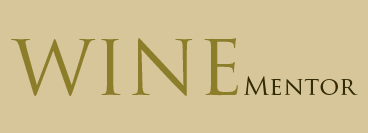It was created using professional experience acquired while pursuing the Court of Master Sommelier Diploma, as well as, training on the floor of some of the country’s top restaurants. This training program is motivational, educational and brings honor back to art of service.
It is highly recommended that managers, chefs and owners attend these seminars so they can adapt and apply the philosophies of service set forth in the training. The reinforcement of professional service fundamentals everyday by the management team will instill good habits in new servers and break bad habits of the veteran staff.
The training program is broken into five two-hour seminars, and each seminar builds on the previous. Because of this, it is very difficult for servers to attend a seminar in the series randomly. Servers should attend the previous class to get the most out of the existing seminar, limit distractions to other students, and keep the training session on time.
Contact Matthew for more information or to request his training services.
If servers attend ONLY one seminar, it must be this one. This session clearly defines the role of a server with examples that can be implemented upon returning to work. Servers will learn the importance of suggestive selling and how selling creates a relaxing dinning atmosphere that puts the server in charge of the table, check average and tip. The fundamentals of proper wine service for still wine are demonstrated and explained (i.e. Why do you use a waiter’s pull, why do you pour the wine from the right…). Finally, servers will have their senses retrained and learn the basic components of wine by tasting and evaluating a series of six wines. This provides a proper foundation for evaluating wine and builds vocabulary so servers can better articulate wine to customers.
Once you have retrained the senses and understand how wine is created in the “Preparing the Palate” course, it is time to explore grape varietal identity. We will review eight popular grapes and examine the physiological characteristics that make each grape unique. We will discus where these grapes are grown throughout the world and briefly review how regional wine laws determine what is put on a wine label. The lecture will discuss the difference between a quality wine and a wine of character; define a great wine; and explore how personal bias and social interaction affects the enjoyment of wine. The class will end with a varietal evaluation of eight different grapes.
At the conclusion of this seminar the foundation is complete. We will review the servers job description and the identity of eight primary grapes, followed by a discussion of how Mother Nature and man influence the identity of each grape. There is a quick crash course on world geography after which the students will blind taste and identify eight different wines. Blind tasting helps servers to better articulate wine vocabulary. Also, students get a tremendous confidence boost as they correctly identify a wines grape and growing region simply by listening to their senses. The seminar wraps up with suggestions and resources for continued wine education.
Champagne and Port are the two easiest add on sales, yet the most often overlooked. In this seminar we will apply the sales tools learned in previous seminars to determine when and how to best sell Champagne and Port. Students will learn why sparkling wine sparkles and how Champagne is different from other sparkling wines, as well as how to safely service a bottle of sparkling wine. The session also introduces fortified wine, and we will discuss the different styles of Port produced. The seminar finishes with a tasting of Champagne and Port in a variety of styles.
There are few things more satisfying to the senses than the marriage of wine and food. This seminar will demonstrate some basic chemical reactions that transpire when saliva breaks down food. It may not be very romantic, but it is the basis of which all great food and wine matches are derived. The practical application will involve several small plates that are theoretically matched with 2 different wines. Students will taste how different components of wine and food react together and will soon understand that the best wine for that steak may be a WHITE wine!
